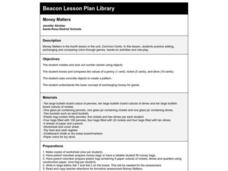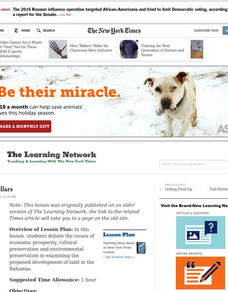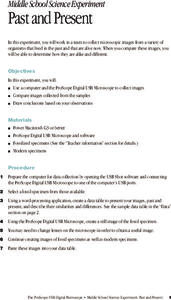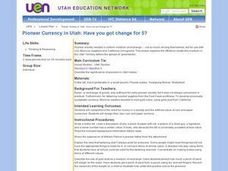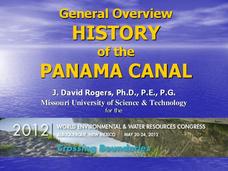Curated OER
Sand Dollars- Non-Fiction Comprehension Worksheet
In this sand dollar non-fiction reading comprehension worksheet, 5th graders read a 2 page selection about the life cycle and habitat of sand dollars. They use a dictionary and the article to define 10 words, and write the answer to 7...
Curated OER
Everyday Problems
Word problems are some of the most applicable ways for scholars to approach math, and this is no exception. Using their addition and subtraction skills in context, they solve five word problem scenarios involving time and money. There is...
Curated OER
Money Matters
Students play a game called Money Matters using cut out representatives of pennies, nickels, and dimes.
Curated OER
Sand Dollars
Students debate the issues of economic prosperity, cultural preservation and environmental preservation by examining the development of land in the Bahamas.
Curated OER
Addition Word Problems #2
Expose scholars to the ways addition is constantly used through 15 word problems. Many of these have more than two addends, and several involve money math and adding numbers with decimals to the hundredths place. Learners also must use...
Curated OER
Past and Present
Students compare fossilized specimens to contemporary specimens. They use a computer and a Proscope Digital USB Microscope to collect and compare images of ferns, sand dollars and sow bugs to those of similar fossilized samples.
Curated OER
Pioneer Currency in Utah: Have you got change for a 5?
Students explore the need for money in a society and the artificial value of coin and paper currencies. They design their own coin and paper currency.
DK Publishing
Real-Life Problems, Large Numbers
Do your fourth graders have a hard time showing their work when solving word problems? This helpful worksheet provides two separate spaces for students to show their work and to fill in the answer. The first problem is solved for them as...
Curated OER
Pioneer Currency in Utah: Have you got change for 5?
Eleventh graders examine why pioneer society needed a uniform medium of exchange -- not so much among themselves, but for use with non-Mormon suppliers and California immigrants.
American Museum of Natural History
The Amazing Mundo
Rocks and minerals are great on their own, but they also turn into some pretty amazing stuff! An online lesson explains the different types of materials we get from rocks and minerals, including glass, plastic, and coins. An embedded...
Kelly's Kindergarten
July Daily Activities
Concerned about your learners forgetting what they've learned during summer vacation? Use a learning guide to keep them busy every day of the week. With activities about writing, drawing, counting, adding, and time, your kids will be...
Laboratory for Atmospheric and Space Physics
A Classroom Solar System
Create a scaled model of our solar system in your classroom! Scholars work collaboratively to build paper mache planets and hang them in their proper position to showcase each planet's location in the solar system.
Curated OER
Sounds Like Science- Bottle Organ
Students investigate the relationship between pitches and notes. In this musical pitches and notes instructional activity, students use different sized bottles, water, and sugar to demonstrate different sounds. Students create musical...
Curated OER
Sea Otters--Funny Mammals of the Sea
In this sea otters learning exercise, students read a 2 page article on sea otters, define 12 vocabulary words from the article and answer 7 comprehension questions in complete sentences.
Curated OER
Invertebrate Vocabulary-- Marine Invertebrate Match
In this science worksheet, students study 12 vocabulary words which pertain to marine invertebrates. Students read the definitions which include pronunciation, part of speech and meaning of the name. Students then look at 16 organisms...
Curated OER
Symmetry
Young scholars explore symmetry. In this geometry lesson, student identify and define bilateral symmetry, radial symmetry, pentagonal symmetry, hexagonal symmetry, and cubic symmetry. Students construct examples of these types of...
Curated OER
Fossil History
Students examine the similarities and differences between living organisms and fossils. In this fossil lesson plan students reenact the process of creating a fossil.
Safe Drinking Water Foundation
To Filter or Not to Filter
Drinking clean water can be taken for granted. Explore the process and high cost of filtering water with a water pollution and filtration activity. Young scientist build a filtration system to filter polluted water, examine the economics...
Curated OER
Exploring Magnets and Magnetism
Here is a very good lesson on magnets, magnetism, and magnitic fields that is chock full of great activities for you to implement with your young scientists. Learners discover the properties of magnets, look at the forces of attraction...
Curated OER
Can Young Children Distinguish Between Living and Non-living Things?
What does it mean to be living? Help your young scientists identify living and non-living things as a result of their learning through discovery. Observation of and interaction with a set of natural phenomena in their community will make...
Curated OER
Ancient Egypt: Life After Death and Mummies
Oh my! Life after death, but how? Learn all about the ancient Egyptian custom of mummification. Each colorful slide provides a how and why related to burial customs, Egyptian religious beliefs, and the process of mummification. A great...
City College of San Francisco
Making Inferences: Reading Between the Lines
Have you ever read part of a story and had to figure out what the rest was about? Practice making inferences with several short passages and multiple choice questions.
Missouri University of science & Technology
General Overview History of the Panama Canal
Called the Eight Wonder of the World by some and the Big Ditch by others, the Panama Canal is indeed an engineering marvel. The long, complicated, and sometimes controversial history of the canal is captured in a presentation loaded with...
Curated OER
Zoology Word Search
In this word search worksheet, students locate words related to the zoology. The word list includes class echinoidea, pedicellaria, and paleozoic.




